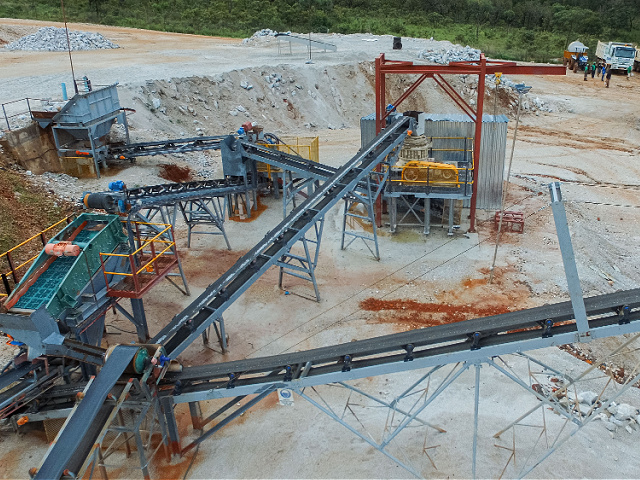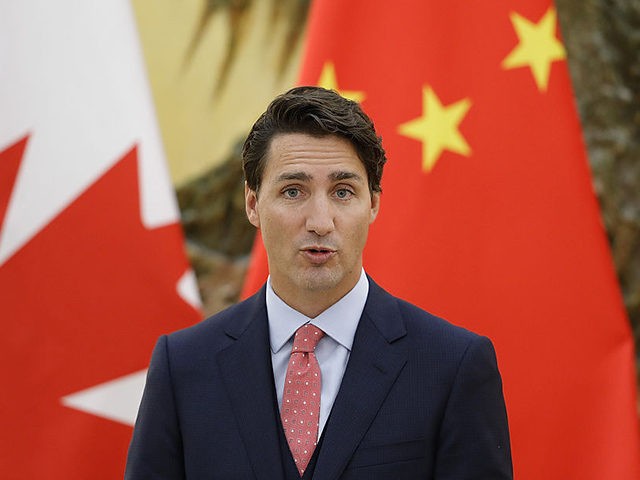The U.S. government is reportedly turning to Canadian mining operations in a bid to break China’s stranglehold on vital mineral resources, especially lithium, cobalt, and manganese.
To that end, the U.S. Department of Defense (DOD) is reportedly assuring Canadian firms they will be treated as part of America’s “domestic mining sector” when applying for hundreds of millions of dollars in grants under the Defense Production Act (DPA).
Canada’s CBC News reported on Sunday that U.S. military officials are actively soliciting applications for DPA grant money from Canadian mining operations.
“The American military has a new pot of money at its disposal to help private companies inaugurate new mining projects; it’s for funding feasibility studies, plant renovations, battery-recycling and worker training,” CBC noted.
The opportunity for ladling some money from that pot into Canadian projects was reportedly expanded at the beginning of November when the Canadian government cited national security concerns to order three Chinese companies to divest themselves of investments in Canadian lithium mining.
Lithium is a vital component in batteries and solar panels. China has a hammerlock on lithium supplies and is acting aggressively to acquire foreign mining projects that might threaten its commanding market share.

One of the grinding mills installed at the mine on January 11, 2022, in Goromonzi, Zimbabwe. China’s Zhejiang Huayou Cobalt has agreed to acquire a 100% stake in the Arcadia hard-rock lithium mine in Zimbabwe from Prospect Lithium Zimbabwe for $422m. (Photo by Tafadzwa Ufumeli/Getty Images)
“While Canada continues to welcome foreign direct investment, we will act decisively when investments threaten our national security and our critical minerals supply chains, both at home and abroad,” Canadian industrial minister Francois-Philippe Champagne said when the divestment order was announced.
The Chinese did not take their eviction notice well, alleging racial discrimination and paranoia were behind Ottawa’s decision. Canada has good reasons to view China with deep suspicion, not least Beijing’s habit of taking Canadians hostage when Chinese Communist Party royalty gets in legal trouble.
The U.S. is moving quickly to present itself as a much friendlier source of development support for Canada’s small but growing lithium industry, while Canadian officials are interested in exploring their status as an “excepted foreign state” under the Committee on Foreign Investment in the U.S. (CFIUS).
“The federal government is determined to work with Canadian businesses to attract foreign direct investments from partners that share our interests and values,” as Champagne put it.
CBC quoted U.S. officials who explained there is also legal precedent for treating Canada as part of America’s “military-industrial base,” making Canadian provinces all but interchangeable with American states for the purposes of DPA spending.
DPA portfolio manager Matthew Zolnowski said the U.S. government is “actively reaching out” to Canadian companies to explain the application process for DPA grants, while Canadian officials are giving Washington lists of companies to call.
“We are actively engaging those firms. It’s a duck on a pond. It looks quiet on the surface, but there’s a lot happening,” Zolnowski said.
In addition to grant money for exploration and development of mineral resources, Zolnowski said the U.S. military can open the floodgates for private investment by giving its seal of approval to Canadian mining projects. The ultimate goal is to energize mineral production for civilian projects, particularly electric vehicles.
The Financial Post noted in 2019 that confidence-building was essential because investors doubted Canada’s relatively tiny mining operations could seriously compete with China’s 60 percent market share, and the Chinese are doing their best to intimidate potential competitors. Among other tactics, China hints to investors that it can use its dominant position to manipulate the price of minerals like lithium.
Canada currently has 13 active rare earth projects, mostly in Saskatchewan and Quebec, but geologists believe it has some of the largest untapped reserves in the world. Even without an infusion of grants from the U.S. military, Canada’s rare earths industry is on track to double in size over the next five years.
Reuters reported in May that the Pentagon asked Congress to modify the DPA so it could provide financial support for rare earths mining in the United Kingdom and Australia, in a bid to reduce American dependence on China. Pentagon officials said at the time that relying exclusively on domestic and Canadian sources would not be enough to “ensure a robust industrial base.”

COMMENTS
Please let us know if you're having issues with commenting.